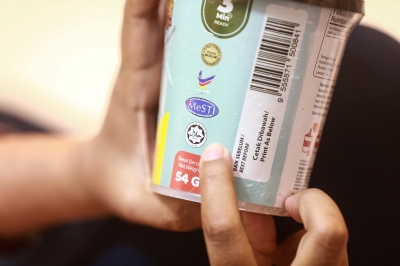GEORGE TOWN, Sept 10 — From January to June this year, 76 per cent of the Malaysian Halal Certification (SPHM) holders in Penang has been dominated by non-Muslim companies, including non-Bumiputera and foreign-owned entities, while the remaining 24 per cent are held by Muslim (Bumiputera) companies.
Penang Islamic Religious Council (MAINPP) president, Datuk Mohamad Abdul Hamid, said that this includes 462 non-Muslim companies and 139 Muslim companies covering micro, small, medium, multinational and foreign-owned industries.
Mohamad, who is also the Deputy Chief Minister I, noted that the data indicates a higher percentage of non-Bumiputera traders applying for Halal certification compared to Bumiputera traders and this demonstrates that Malaysia’s Halal certification is trusted by all parties, regardless of religious or ethnic background.
“To further encourage Halal certification applications, the process has also been expedited. For Penang, the process has been shortened from 90 days to 30 working days since November last year,” he said in a statement today.
According to Mohamad, the statistics for Halal Certification Holders in Penang has seen a yearly increase, from 56 companies in 2008 to 1,651 companies as of August this year. This includes companies involved in food products, utilitarian materials, business premises, hotels, slaughter houses, cosmetics and logistics.
Mohamad said that the data indicates a growing awareness and demand among consumers for Halal products and services each year.
He stated that Malaysia’s Halal certification also provides an opportunity to enhance customer confidence and open up broader markets, both locally and internationally.
He added that Malaysia’s Halal certification for domestic purposes is available through nine schemes: food premises, food and beverage products, cosmetics, pharmaceuticals, utilitarian products, medical devices, logistics services, slaughter houses and Original Equipment Manufacturer (OEM).
According to him, businesses with Halal certification have a competitive edge and are trusted by various segments of society. Moreover, based on the State of the Global Islamic Economy (SGIE) 2023 report released by Dinar Standards, Malaysia is ranked first in the Halal food sector in the Global Islamic Economy Indicator (GIEI) 2023.
Therefore, he urged the public to continue supporting JAKIM’s efforts and commitment to increasing company participation in Malaysia’s Halal certification applications, ensuring that SPHM management remains at its best and becomes a national pride. — Bernama

